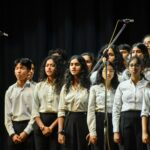A Reflection on Cultural Perspectives, Aspirations, and Pathways to Achievement
Lucknow – Uttar Pradesh, India’s most populous state, is a melting pot of diverse cultures, religions, and traditions. This diversity extends beyond language and lifestyle to the very definition and pursuit of success. From the spiritual ethos of Varanasi to the entrepreneurial vigor of Noida, communities across the state perceive and achieve success in ways deeply influenced by their cultural and philosophical roots.
As modernization sweeps through the state, these philosophies continue to evolve, reflecting the interplay of tradition and aspiration.
Key Metrics
- Urbanization Rate: Uttar Pradesh’s urban population accounts for 24% of the total, indicating a significant rural majority with differing values (Census 2011).
- Employment Trends: Over 60% of the workforce is employed in agriculture, while industrial hubs like Kanpur and Noida are rapidly expanding their economic base (UP Employment Bureau, 2023).
- Education Enrollment: The state has a literacy rate of 73%, but rural areas lag behind urban centers in access to higher education and vocational training (National Statistical Office, 2023).
- Youth Demographics: More than 35% of the population falls within the 15-35 age group, making youth aspirations a critical factor in shaping success narratives.
Philosophical Roots of Success Across Communities
1. Rural Aspirations: Success as Community Welfare
In the agrarian heartlands of Purvanchal and Bundelkhand, success is often measured by collective prosperity rather than individual achievements.
- Agricultural Prosperity: Farmers view a good harvest and sustainable practices as the pinnacle of success. Initiatives like organic farming reflect Gandhian ideals of self-reliance and harmony with nature.
- Community-Centric Philosophy: Villages prioritize shared resources and mutual aid, with success often tied to the well-being of the entire community.
2. Urban Visions: Success as Innovation and Growth
In industrial and urban hubs like Noida, Lucknow, and Kanpur, success is frequently associated with economic growth, entrepreneurial ventures, and professional milestones.
- Entrepreneurial Drive: Noida’s IT and startup culture fosters a results-oriented philosophy where risk-taking and innovation are celebrated.
- Professional Achievement: For urban youth, success often aligns with securing high-paying jobs, reflecting modern capitalist values.
3. Spiritual Communities: Success as Inner Fulfillment
In spiritual centers like Varanasi, Mathura, and Ayodhya, success transcends material gains and is rooted in self-realization and devotion.
- Philosophical Perspective: Drawing from the teachings of the Bhagavad Gita and other scriptures, success is seen as fulfilling one’s dharma (duty) and achieving inner peace.
- Cultural Practices: Pilgrimages, rituals, and meditation are integral to this worldview, emphasizing the pursuit of moksha (liberation).
4. Syncretic Traditions: Success as Harmony and Inclusion
Regions influenced by Sufi-Bhakti traditions, such as Bareilly and Amroha, prioritize communal harmony and social equity as markers of success.
- Social Philosophy: Success is defined by contributions to society, particularly through acts of compassion, inclusion, and bridging divides.
- Cultural Expressions: Poetry, music, and festivals in these regions celebrate shared achievements and unity.
Modern Influences on Success Philosophies
1. Education and Skill Development
With rising literacy rates and initiatives like Skill India, more youth in Uttar Pradesh are viewing education and skill acquisition as pathways to success.
- Example: Over 2 million youth have been trained under skill development programs, leading to greater employability in industrial and service sectors.
2. Digital Aspirations
The Digi Shakti Program has equipped over 50 lakh students with digital tools, shifting perceptions of success toward tech-driven opportunities.
3. Migration Trends
Rural-to-urban migration reflects a shift in aspirations, with many seeking success in cities while retaining ties to their rural roots.
Challenges in Achieving Success
- Inequality in Opportunities: Urban areas have better access to education and employment, leaving rural populations at a disadvantage.
- Caste and Gender Barriers: Traditional hierarchies often limit the aspirations of marginalized communities and women.
- Economic Disparities: Wealth concentration in industrial hubs contrasts sharply with poverty in regions like Bundelkhand.
Philosophical Pathways for Inclusive Success
1. Integrating Tradition and Modernity
- Action: Promote sustainable development models that balance rural philosophies of community welfare with urban ambitions for growth.
2. Bridging the Rural-Urban Divide
- Example: Expanding vocational training in rural areas can align local skill sets with modern industries, fostering inclusive growth.
3. Empowering Marginalized Groups
- Action: Strengthen policies for gender equality and caste-based inclusion, enabling broader participation in economic and social spheres.
Conclusion
The diverse philosophies of success in Uttar Pradesh reflect its cultural richness and socio-economic complexities. While rural communities value collective welfare, urban centers prioritize innovation and professional achievement. At the same time, spiritual and syncretic traditions offer pathways to fulfillment that transcend materialism.
By embracing this diversity and addressing systemic challenges, Uttar Pradesh can create a more inclusive narrative of success—one that honors its heritage while paving the way for a prosperous future.








